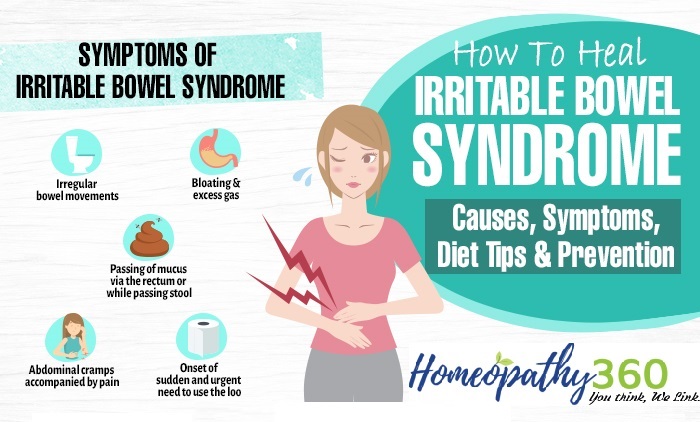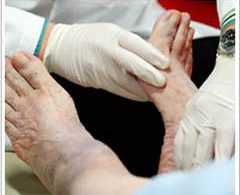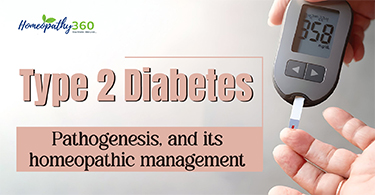
Also known as Spastic colon Irritable colon Mucous colitis Spastic colitis, irritable bowel syndrome (IBS) is a disorder characterized typically by abdominal pain and cramping, bloating, , back pain, fatigue and alteration of bowel habits. As a functional bowel disorder, IBS has no known organic cause. IBS is often classified as IBS-D (cases with predominant diarrhoea), IBS-C (cases with predominant constipation) or IBS-A (cases where diarrhoea and constipation alternate with each other).
IBS is essentially a diagnosis of exclusion i.e. the absence of alarm features (age above 50 years, severe and sudden weight loss, severe anaemia, signs of colitis or family history of inflammatory bowel diseases) and structural abnormalities (on endoscopy) but presence of remarkable psychological aetiology such as stressful work and home environment, depression, anxiety etc.
It is not clear why patients develop IBS. Most of the cases occur after an infection of the intestines. This is a variant of classical IBS, called post-infectious IBS. The risk factors being young age (mostly teens or early adulthood), prolonged fever (due to any reason) or after an attack of acute gastrointestinal infection.
However, there may also be other triggers most important of which are stress, anxiety and depression. Signals go back and forth between the bowel and brain via the nerves. These signals affect bowel function. The nerves often become more active during stress, causing the intestines to be more sensitive and contract more vigorously. Thus, the appearance of characteristic symptoms but no significant tissue changes on medical examination.
When it comes to the clinical presentation of IBS, the symptoms range from mild to severe. Most people come with mild symptoms but the intensity as well as the presentation varies from person to person.
The main symptoms of IBS are abdominal pain, fullness, gas, and bloating that have been present for at least 3 days a month for the last 3 months. The pain and other symptoms will often be reduced or go away after a bowel movement. Absence of the desire to eat or at times total aversion to even the sight or smell of any kind of food is also a feature and may at times be the sole presenting complaint.
Most of the cases are Type A in character i.e where diarrhoea and constipation alternate.
- People with diarrhoea will have frequent, loose, watery stools. They will often have an urgent need to have a bowel movement, which may be hard to control.
- Those with constipation will have fewer bowel movements. They will often need to strain and will feel cramps with a bowel movement. The stools will be dry hard and difficult to expel. Often, the patient will not release any stool, or only a small amount.
Irrespective of the type of IBS, the symptoms are consistent. Only in rare cases do they remit and relapse frequently. Is all that relevant for us homeopaths? For us homeopaths, the symptoms of the disease and the precise diagnosis has never been of importance. We pay attention to the signs and symptoms and that’s all we need for making an accurate prescription. But in today’s times when unity of medicine is the preferred approach, diagnosing a disease has become important for us too. Most of the time, IBS can be diagnosed symptomatically i.e. with few or no tests and investigations at all. However, few blood tests and stool cultures may be required to rule out other problems like celiac disease, anaemia or to check for an infection. Often there has been a divide amongst homeopaths when it comes to their opinion on the importance of diagnosis in Homeopathy. It would not be wrong to say that while a diagnosis of the disease is not necessary for making prescriptions in homeopathy, it is indeed required for appropriate management of the case. An ideal medical practitioner must know that it is not just an accurate prescription, but supportive management of the case that leads the patient to recovery. This is especially true in cases of functional disorders like IBS. While most homeopaths will be quite adept at prescribing the similimum for their cases, the importance of supportive therapy is often brushed aside.
- Since stress is the major trigger factor for IBS, cutting down on the stress circuit will provide maximum relief. Regular meditation, yoga or simple breathing exercises are often helpful in getting rid of stress, anxiety and depressing thoughts.
- Minimising the intake of fried foods, spicy meals like meat, chicken curry, oils, margarine, dairy foods also relieve the patient of abdominal discomfort. These foods cause the colon to contract violently and produce diarrhoea.
- Caffeine should be avoided as coffee usually worsens IBS
- All foods known to cause flatulence like urad dal, cabbage, sprouts and broccoli are to be avoided.
- Alcohol should be avoided at any cost as it causes the symptoms to aggravate. The complex carbohydrates in beer often triggers symptoms.
- Artificial sweeteners (like sorbitol and mannitol) have a laxative effect on the bowels and are difficult to digest.
- Quit smoking as nicotine contributes to IBS flare- ups.
- Both soluble and insoluble fibres are likely to be beneficial for patients of IBS-C with hard dry stools but should be avoided by those with IBS-D with loose slimy stools. Insoluble fibre is found in whole wheat, nuts, bran, beans and pulses. Soluble fibre is present in rich amounts in foods like apples, strawberries, grapes and porridge.
- Drink atleast eight to ten glasses (2.5ltrs) of water each day. Water helps regulate bowel movements and removes toxins from the body.
- Eat smaller but frequent meals in case of a full blown IBS.
- Prolonged diarrhoea can drain off the normal colonic bacteria. Bio – yogurt containing active bacteria (L. acidophilus) or other probiotic supplements furnish the normal colonic flora and prevent diarrhoea.
- Peppermint tea is known to have a relaxing effect on the intestines, it reduces spasms and relieves flatulence.
- Lastly, mild regular exercise regime like walking, swimming etc. also helps.
About Author:
Dr. Rashi Prakash, SME,
The Homeopathic Academy, BJain Publications






